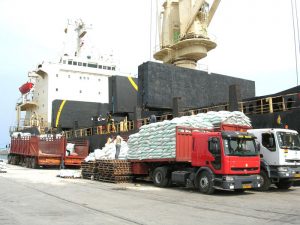The proposed deal to allow the Ghana National Petroleum Corporation (GNPC) to acquire significant stake in Aker Energy’s two oil blocks can best be described as a strategic defence for the economy in the long term, the Institute for Energy Security (IES) has said.
The civil society organization believes that with oil majors aggressively participating in the global energy transition by reallocating resources to renewable energy, it is time for the national oil company, GNPC, take ownership and build the necessary capacity to produce the country’s own oil and not continue to rely on international oil companies.
“The best approach is to look within. The threat posed by the energy transition to Africa nations, including Ghana, demand an appropriate policy response, which must be internal in nature. The Ghana National Petroleum Corporation must position itself technically and financially to be able to exploit the country’s hydrocarbons with limited support from international oil companies (IOCs).
The recent exit of ExxonMobil from Ghana to concentrate on advantaged assets in other places makes a strong case for the GNPC take over and produce the country’s oil to support its economic growth.
Therefore, the proposed partnership between Ghana National Petroleum Corporation (GNPC) and Aker Energy for a farm-in to two oil blocks operated by Aker Energy Ghana Limited can best be described as a strategic defence,” the IES said in a statement signed by its Executive Director, Nana Amoasi VII.
According to Nana Amoasi VII, the move is to ensure that the GNPC builds that technical and financial capacity to take over potential stranded oil blocks and stop the declining oil production we are seeing. “The structure of the partnership must however ensure that GNPC plays an active role in the proposed ‘joint operatorship’, so the needed skills, knowledge and technology transfer into Ghanaian hands can be achieved in no time,” he said.
GNPC’s move
The GNPC, through its exploration subsidiary, Explorco, is allowed to participate in the upstream petroleum sector and it plans to purchase a 70 percent stake in the South Deep Water Tano (SDWT) operated by AGM Petroleum Ghana Limited and a 37 percent stake in the Deep Water Tano/Cape Three Points (DWT/CTP) operated by Aker Energy Ghana Limited.
The company will form a joint operating company with the two entities and acquire the said stakes at different agreed prices. GNPC has already secured Cabinet approval and is seeking $1.65 billion loan. The company has justified the deal, saying such a partnership with the two entities is critical because of the exiting of oil majors from the country. It said it needed to build its capacity and take up a large part of the exploration activities before Ghana’s oil reserves hit a level of terminal decline.
Current state of oil production
Already, Ghana’s combined crude oil and condensate production has since 2019 experienced annual decline and is projected to fall to unattractive and profitable levels within the next decade, if no strategic policy decisions are taken.
The decline in production rates is largely attributed to failure to develop new fields since 2017. Technical challenges with some production fields, and lack of investment for new field developments attributed to the energy transition, have also been identified as contributing factors. Coincidentally, the production fall reflects in all three existing producing fields, namely, the Jubilee, Sankofa Gye Nyame (SGN), and the Tweneboah-Enyera-Ntomme (TEN).
For Jubilee, which is operated by Tullow Oil, the highest per day crude and condensate production recorded was 102,130 in 2015, and this has since seen an average decline rate of 4 percent, to drop to 83,127 barrels per day (bpd) in 2020. For 2021, it is projected that the average per day production from Jubilee field would fall below 74,000.
The TEN oil field which is also operated by Tullow Oil and commenced production in 2016, has been recording gradual reductions in crude and condensate volumes since 2018 when average daily production was pegged at 64,548. The production levels for 2018 is however projected to fall by roughly 40 percent in 2021 and going forward.
The SGN field operated by ENI is, for the first time since production began in 2017, expected to see a production fall in 2021, from 2020’s high of 51,088 to 42,500 bpd production of crude and condensate.
The combined fields produced its highest of 195,722 barrels per day in 2019, but this is expected to fall by roughly 21 percent to an average daily production of 154,050, as analyzed from Petroleum Commission (PC) and the Ghana National Petroleum Corporation (GNPC) data.
Unfortunately, fewer discoveries have been made since 2017 despite 18 petroleum agreements (PAs) signed by oil companies with the Government of Ghana (GoG). In addition, there are presently about 11 fields with limited or no activity, adding to the difficulty to increase production reserves and volumes. The discoveries made over the last five years includes Springfield’s Afina, AGM Nyarkom, Aker Energy Pecan Southeast, and 2 other fields (Akoma and Eban) over ENI’s Block 4.
Incentives for existing oil producers
In Nana Amoasi VII’s opinion, while it is okay for government to consider the partnership of GNPC with Aker Energy to avert the dwindling fortunes of the country’s upstream petroleum sector, government must also, as a matter of necessity, provide incentives to oil companies that have already reported discoveries, to facilitate earlier production of the fields.
“Areas to consider in incentivizing these oil producers include but not limited to reviewing downwards royalties and other tax rates, and the upfront payments meant for technology transfers and trainings. In other words, government must be willing to review and re-package the fiscal terms. In addition, and more importantly, government must consider re-awarding non-performing blocks to companies that are ready and willing to explore and possibly move towards production immediately.”






